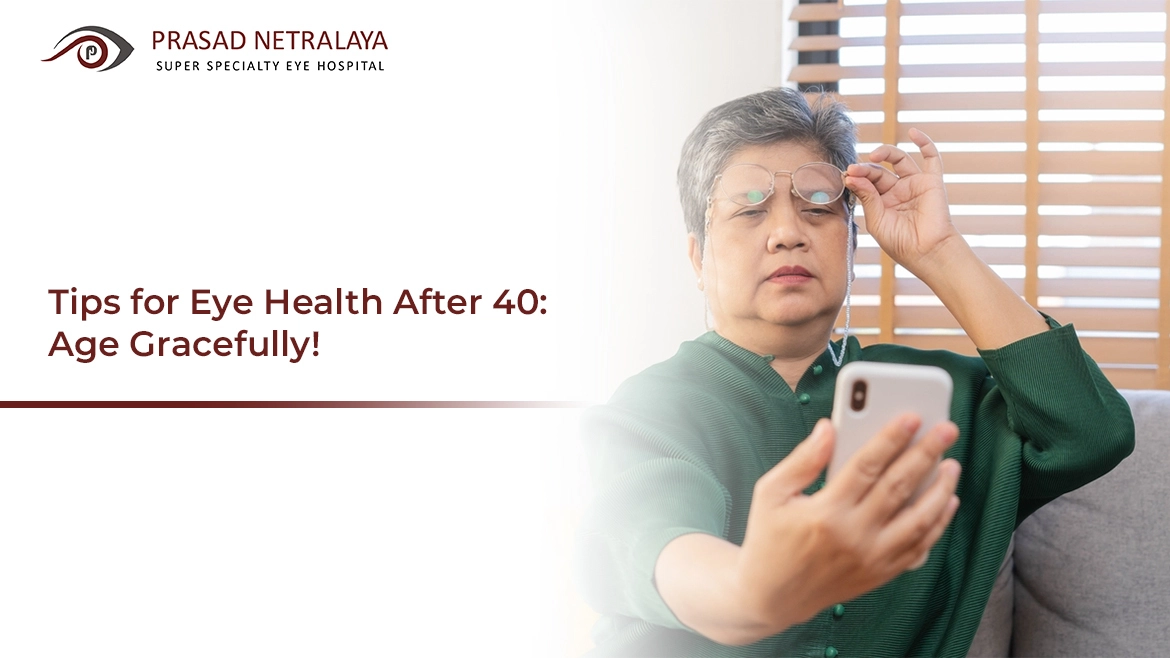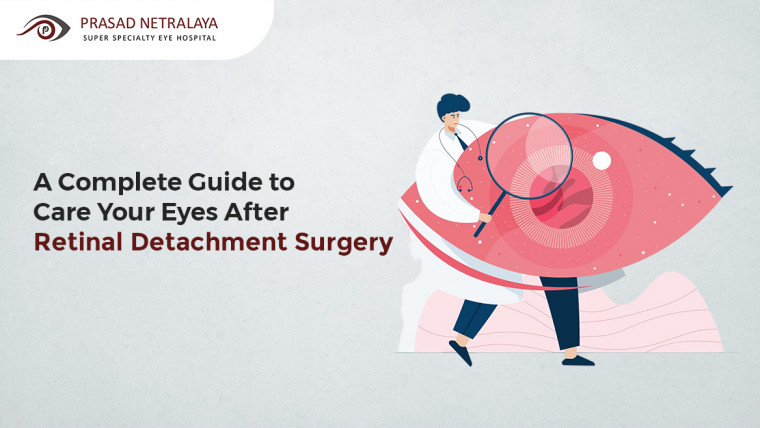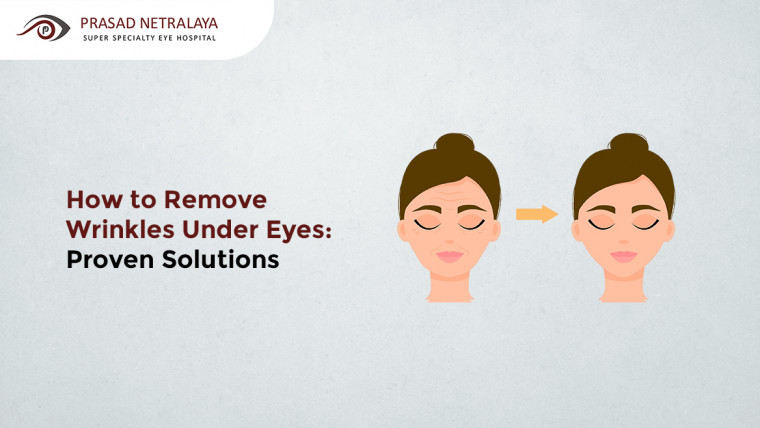Ageing is a bitter pill to swallow, and as we grow older, we go through changes that can affect our eye health.
These inevitable and noticeable changes can impact our daily lives. So, to avoid vision problems that result from poor eye health after your 40s, we advise that you start taking care of your eyes as early as possible.
In this blog, we will delve into proven techniques that can help maintain healthy vision as you age. These methods aim to prevent age-related eye diseases and promote overall eye health.
Table of Contents
Top 6 Eye Health for Those in Their 40s
The following are the six methods recommended by doctors to maintain optimal eye health.
1. Go for Regular Eye Check-Ups
Eye exams become an important part of maintaining good eye health as you get older. These examinations check the retina and optic nerve for changes in vision at an early stage, allowing for rapid treatment and preventing vision loss.
As a general rule, people should get their eyes checked at least once every two years. If there’s a family history of eye disease or other risk factors, we advise more frequent check-ups.
Diabetic and pre-diabetic patients should get yearly eye exams and work with their doctors to manage their cholesterol, blood pressure, blood sugar, and weight.
2. Eat a Balanced Diet
A balanced diet is key to maintaining excellent eye health. Eating foods rich in vitamins, minerals, and antioxidants can significantly decrease the risk of eye problems.
A well-balanced diet can also help minimize the risk of chronic diseases that can affect eye health.
Doctors recommend getting the necessary nutrients from a range of meals, such as fruits and vegetables, whole grains, lean meats, and healthy fats.
3. Quit Smoking
It should come as no surprise that smoking is the leading cause of many diseases, especially those that affect the eye. It can increase your chance of contracting age-related eye diseases such as macular degeneration, cataracts, and optic nerve damage.
These illnesses have an impact on a person’s quality of life and can lead to vision loss or blindness.
4. Protect Your Eyes From UV Rays
Long-term exposure to ultraviolet (UV) radiation can cause irreparable damage to your eye health. The most common illnesses induced by UV radiation are cataracts and macular degeneration.
Using UV-protected eyewear can help lower the risk of UV-related eye damage. Go for eyeglasses that offer 100% UV protection and cover the eyes completely.
5. Reduce Screen Time
Using digital devices such as computers, tablets, and smartphones for long hours can lead to eye strain, dry eyes, and blurred vision. This is known as computer vision syndrome (CVS).
To avoid CVS, take regular breaks from screens and follow the 20-20-20 rule. Take a break every 20 minutes to look at something 20 feet away for 20 seconds to reduce eye strain. You can also adjust screen settings such as brightness and contrast.
Try using eye drops or artificial tears to treat dry eyes caused by extensive screen use. Artificial tears contain lubricants that soothe the eyes and relieve symptoms like itching, burning, and irritation.
6. Exercise Regularly
Diseases like high blood pressure, diabetes, and obesity can damage the blood vessels in the eyes, resulting in eye problems. Regular exercise can improve your blood circulation and, as a result, prevent these diseases.
Incorporating exercise at least three times a week into your daily routine can help reduce the risk of developing these diseases.
Aim for at least 20–30 minutes of daily cardio. Additionally, you can even try palming, a yogic eye exercise to relax the muscles around your eyes.
Also Read : Protecting Your Vision After 40: Key Precautions You Can Take Today
Improve Your Eye Health and Age Gracefully With Prasad Netralaya!
Your eyes are the windows to the world, so it’s important to prioritize their health as you age. By implementing these proven methods, you can prevent age-related eye problems.
Your eyes deserve the best care, so take a step towards better eye protection today! Schedule a consultation with Prasad Netralaya, where you’ll receive expert care from the best eye specialists in Mangalore. Contact us now to enjoy clear and vibrant eyesight for years to come!



